
Aside from being a children's favorite, apple juice has several uses in the kitchen. It can be processed into apple jelly for your morning toast, used as a marinade for barbecued ribs, or serve as the cooking liquid for slow-simmered braised meats. Cooking with it is a way to use up apple juice that's past its freshness date, if you'd prefer not to drink it.
Freshness Isn't Expiration
It's important to understand that although your apple juice is dated, it doesn't actually expire. Expiration dates are marked on products, such as infant formula, which can become unsafe for use over time. Apple juice is dated purely for your convenience, so you'll know when it's at its best. Even pasteurized, shelf-stable apple juice will eventually begin to lose its flavor over time, and by reading the date, you'll know which bottles, cans or boxes to use first. The juice is perfectly safe after that date, but it might not taste as good as it did when it was new.
Open and Shut
That date assumes you're storing the juice away from direct light and extremes of heat and cold, and that the seal on the container hasn't been broken. If the juice has been opened, or if the container's seal has been accidentally been punctured, the juice must be refrigerated right away. Otherwise, it will spoil within a day or two. If it's refrigerated immediately, you'll have seven to 10 days to use it up. That's plenty of time to plan a meal that uses the apple juice, even if you need to pick up a few other ingredients.
The Sniff Test
Apple juice spoils gradually but unmistakably, and you don't need any special equipment to know the difference. Usually, wild yeasts will colonize the apple juice and begin to ferment its sugars into alcohol. If you're still drinking the apple juice, you'll notice a hint of fizz on your tongue and a slight bitterness. At that point, the juice is still fine for use in cooking. If it's left longer, it will develop a strong odor of alcohol or vinegar. At this point, throw it out, as it's no longer suitable for use. If the yeasts are especially active, they might be visible as a cloudy mass in the juice.
A Few Cooking Ideas
Apple juice has a balanced mixture of sweetness and acidity that makes it a good foil for many dishes, especially if they're rich or fatty. For example, if you boil it down to one-third of its original volume, apple juice makes an excellent glaze for a baked ham or barbecued ribs. It also lends a rich, round flavor to slow-cooked sauerkraut, simmered in the European style for hours with a smoked ham hock and sausages. Use apple juice as the braising liquid for simmering ribs or a pork shoulder in your slow cooker, where its flavor and mild acidity permeate and tenderize the tough pork.
Related Articles

How Long Can You Refrigerate Fresh ...

How Long Does Tomato Juice Last After ...

How to Tell When Orange Juice Has ...
Does Lemon Juice Go Bad If Not ...

How Long Can You Preserve Fresh ...

Where to Buy Pomegranate Juice
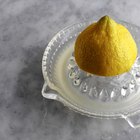
What Is the Freezing Point of Fruit ...

Does Brandy Ever Go Bad?

Can Drinking Old Vodka Hurt You?

If Pippin Apples Are Not in Season, ...

How to Store Balsamic Vinegar
How Long Can You Refrigerate Fresh ...

The Difference Between Fruit Juice & ...

How Long Will Pineapple Juice Stay Good ...
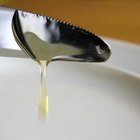
Does Corn Syrup go Bad?
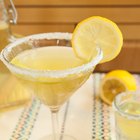
How to Make Limoncello
How to Tell If Fresh Tomato Juice Is ...
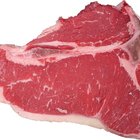
What Juices Tenderize Steak?
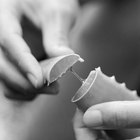
How Long Does Aloe Vera Juice Last in ...

Do You Use a Meat Mallet Before or ...
References
Writer Bio
Fred Decker is a trained chef and prolific freelance writer. In previous careers, he sold insurance and mutual funds, and was a longtime retailer. He was educated at Memorial University of Newfoundland and the Northern Alberta Institute of Technology. His articles have appeared on numerous home and garden sites including GoneOutdoors, TheNest and eHow.
Photo Credits
Ablestock.com/AbleStock.com/Getty Images